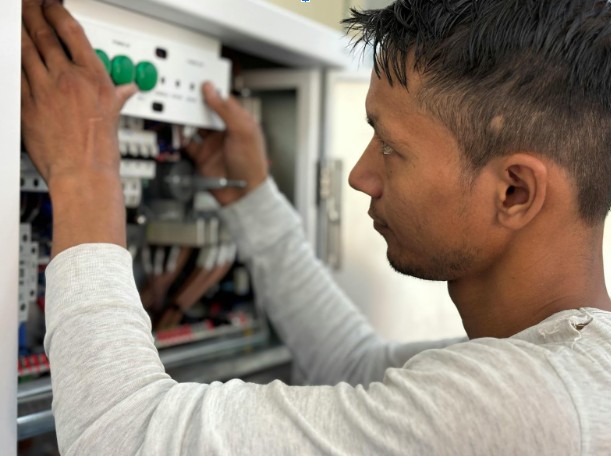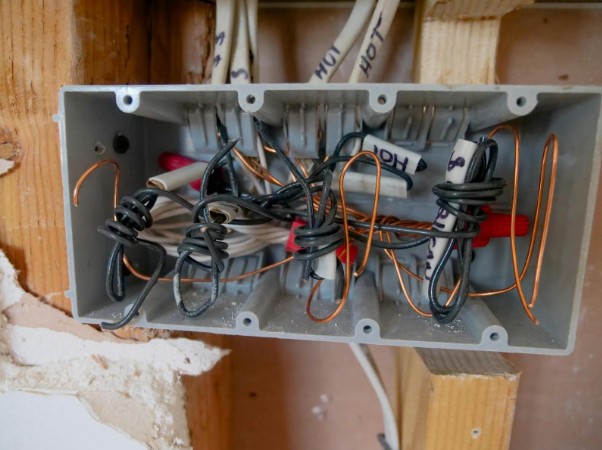Your home’s electrical system is one of its most important features, powering everything from lights and appliances to devices that keep you connected. As modern households continue to add more electronics, high-powered appliances, and smart devices, older or poorly maintained electrical systems can easily become overloaded. An overloaded system is inconvenient and a major safety hazard, as it significantly increases the risk of electrical fires, equipment damage, and power outages. Understanding the warning signs can help you take corrective action early and protect your home and family from serious electrical issues.

Frequent Circuit Breaker Trips
One of the clearest signs that your electrical system might be overloaded is when circuit breakers frequently trip. Breakers are designed to protect the system by cutting off power whenever the electrical load exceeds safe levels. While the occasional trip is normal, repeated electrical problems suggest that the circuit is being asked to handle more power than it should. For example, running several high-wattage appliances like microwaves, air conditioners, or hair dryers on the same circuit can overwhelm its capacity. If you find yourself constantly resetting breakers, it’s a good indication that your system needs an upgrade or redistribution of the load.
Flickering or Dimming Lights
Another red flag is when your lights flicker, dim, or behave erratically when other appliances are running. This often happens when large appliances like refrigerators or washing machines draw power from the same circuit as your lighting. The lights may momentarily dim because the circuit is struggling to balance the demand. While occasional flickers could be caused by a loose bulb or connection, persistent dimming when appliances are in use points to an overloaded system. This is a warning you should not ignore, as it can be an early indication of more serious electrical strain.
Overheated Outlets and Switch Plates
If you notice that your outlets or switch plates are warm or even hot to the touch, it is a serious sign that your electrical system is under strain. Excessive heat can be caused by wires carrying more current than they are rated for, which creates dangerous conditions behind your walls. In some cases, you might notice a burning smell or discoloration around the outlets, which signals overheating and possible electrical arcing. These issues require immediate professional attention since ignoring them can lead to melted wiring insulation and potential fire hazards.
Buzzing Sounds or Burning Odors
Electrical systems are designed to run silently, so any unusual noises should raise concern. If you hear buzzing, crackling, or humming sounds coming from outlets, switches, or your breaker panel, it often indicates loose wiring or overloaded circuits. Burning odors that resemble melting plastic should never be dismissed. These smells often come from overheated wiring, insulation, or components, which pose significant safety risks. Unusual noises and smells are among the most urgent warning signs of an overloaded electrical system and should be addressed immediately by an electrician.
Use of Too Many Extension Cords
Another indirect but important sign of an overloaded system is reliance on multiple extension cords and power strips throughout your home. While these tools provide temporary solutions, they often mask the bigger issue of insufficient outlets or circuits for your household’s needs. Plugging too many devices into one circuit through extension cords can easily overwhelm its capacity and lead to overheating. Instead of relying on these stopgaps, it’s safer to install additional outlets or circuits tailored to your usage. Overusing extension cords is a clear signal that your electrical system is struggling to keep up with demand.
Old or Outdated Electrical Panels
If your home still relies on an old or outdated electrical panel, it is much more susceptible to overload. Many older homes were built decades ago when electrical needs were far simpler. A panel designed to handle 60 to 100 amps of electricity may not be sufficient for modern homes that often require 200 amps or more. Outdated panels lack the capacity for today’s devices and may no longer meet safety codes. If your home has never had an electrical panel upgrade or if the panel looks rusted or outdated, it’s time to consider modernizing it for safety and efficiency.

An overloaded electrical system is a serious issue that should never be ignored, as it can compromise safety and functionality in your home. Warning signs such as tripping breakers, flickering lights, overheated outlets, buzzing sounds, excessive reliance on extension cords, and outdated panels should all prompt immediate attention. While some solutions may involve simple fixes like redistributing appliance loads, others may require professional upgrades to your wiring or electrical panel. By recognizing these signs early and taking action, you can prevent costly damage, protect your home from fire hazards, and ensure your electrical system keeps up with your family’s growing needs.






